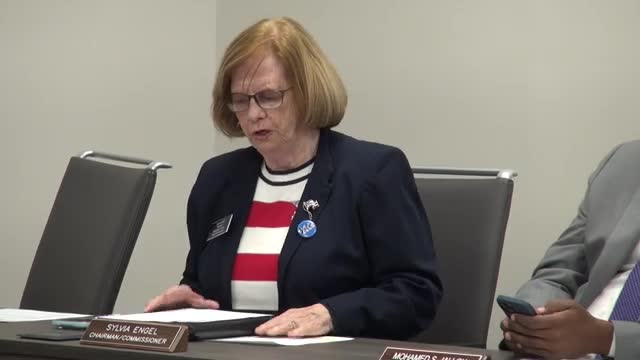Middlesex board accepts challenge to review 900+ ballots flagged by out‑of‑state matches
Get AI-powered insights, summaries, and transcripts
Subscribe
Summary
The Middlesex County Board of Elections voted on Nov. 5 to accept a challenge asking staff to review a list of ballots flagged by a private data tool as potentially belonging to voters who have moved out of state.
The Middlesex County Board of Elections voted on Nov. 5 to accept a challenge asking staff to review a list of ballots flagged by a private data tool as potentially belonging to voters who have moved out of state.
The challenge, brought by Cathy Aberdanski and presented by Mark Dimo, cited about 948 records that showed matches to out‑of‑state registrations or change‑of‑address databases. Dimo told the board the list was compiled from a system called Ellie, built by Eagle AI, which aggregates voter rolls from roughly 40 states and compares them to proprietary PCOA (proprietary change‑of‑address) and the NCOA (national change‑of‑address) databases. He said Ellie applies a multi‑factor match (examples cited include utility bills, phone bills, credit card deliveries and magazine subscriptions) and that the Election Assistance Commission recommends use of PCOA data as a best practice. "Ellie has 41 states and DC voter rolls and 220,000,000 voters," Dimo said in his presentation.
Commissioners pressed staff and the presenter about the risk of false positives: business addresses, forwarded mail, snowbirds, adult children remaining on parents’ registrations, and other legitimate reasons can produce hits in address‑matching systems. County staff said they have used similar change‑of‑address tools previously, that the tool is a useful lead but not a sole basis for disqualifying votes, and that last year staff sent letters to flagged voters and deactivated registrations only when affirmative evidence (such as registration or voting in another state) supported that step. "We don't use that information alone," a staff member said, describing the prior procedure of sending confirmation letters and relying on follow‑up records (motor vehicle, online registration, in‑person updates) before making voters inactive.
After discussion, a commissioner moved to accept the challenge for staff review; the motion was seconded and the board proceeded. Commissioners recorded voice votes during the roll: Chairman Engle was recorded voting to accept; Commissioner Moskowitz was recorded voting no; Commissioner Benjovica was recorded voting yes; Commissioner Snyder was recorded as opposed. The board directed staff to hand‑pick and analyze the flagged ballots and to return recommendations on whether any ballots should be accepted or rejected based on the office’s review and available resources. The motion carried and the board instructed staff to follow their normal investigatory and notification process.
The board did not remove ballots immediately based on the Ellie list alone. Staff said the list is a lead and that they would send notifications to flagged voters and investigate registration dates and any actions showing registration or voting in other states before recommending removal. They also said they will attempt to determine whether flagged individuals voted in both jurisdictions where applicable.
Next steps announced by staff included compiling detailed registration and vote history information for the flagged records, sending correspondence to affected voters as part of the normal maintenance process, and reporting back to the commissioners with staff recommendations.
